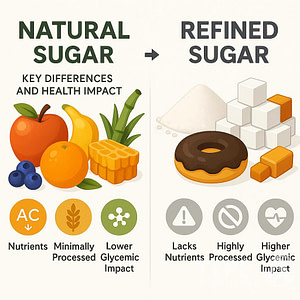Robert F. Kennedy Jr.’s nomination as secretary of Health and Human Services signals a potential shift in America’s approach to public health.
As part of the incoming administration’s vision, Kennedy’s focus extends beyond vaccination policies to encompass broader concerns about food quality and environmental toxins.
You may soon see changes in how the government addresses issues like food additives, pesticides, and pollutants.
Popular posts:
Kennedy’s appointment suggests a renewed emphasis on examining the safety of chemicals in our food supply and environment.
This could lead to new policies aimed at reducing exposure to potentially harmful substances and improving overall health outcomes for Americans.
Key Takeaways
- Kennedy’s nomination may lead to stricter regulations on food additives and environmental pollutants
- The new administration plans to prioritize public health concerns related to chemical exposure
- You might see increased scrutiny of current food safety and environmental protection practices
Kennedy’s Stance on Highly Refined Foods
Robert F. Kennedy Jr. has expressed strong views on the prevalence of highly refined foods in the American diet.
He believes these products are significantly contributing to the obesity crisis and the rise of lifestyle-related illnesses in the United States.
Kennedy argues that many industrially manufactured foods, often loaded with chemical additives like emulsifiers and artificial sweeteners, are detrimental to public health.
He has gone as far as labeling these items “poison” and claims they are systematically harming children for corporate profit.
His concerns extend to school lunches, where he proposes removing highly refined options entirely.
Kennedy also criticizes the use of certain food additives in the U.S. that are prohibited in European countries, suggesting he may pursue stricter regulations if given the opportunity.
Key issues Kennedy associates with highly refined foods include:
- Obesity
- Type 2 diabetes
- ADHD
- Autism
- Asthma
- Hyperactivity
- Learning disabilities
While the debate around highly refined foods continues, many health experts agree that reducing their consumption can be beneficial.
Kennedy’s position aligns with this sentiment, though his language tends to be more forceful than some nutritionists might use.
As you consider your diet, be aware of the potential impacts of highly refined foods on your health and well-being.
Evaluate the ingredients in your meals and consider opting for less processed alternatives when possible.
Chemical Concerns in American Food
Robert F. Kennedy Jr. has voiced strong opinions about toxic substances in the U.S. food supply.
He claims that pesticides, additives, and other chemicals are pervasive in Americans’ bodies.
Kennedy argues these substances pose significant health risks, especially to children.
While some scientific evidence supports concerns about agricultural chemicals, experts caution against overstating the dangers.
Certain pesticides and food additives have been linked to health issues like:
- Increased cancer risk
- Hormone disruption
- Developmental problems in children
However, the food system is complex. Blanket statements about “toxic soups” may oversimplify the nuances of food safety and nutrition science.
Kennedy proposes dramatic changes to U.S. agricultural policies. He advocates for:
- Limiting chemical pesticides and fertilizers
- Promoting regenerative farming practices
- Improving soil health
These ideas align with some sustainable agriculture movements. Proponents argue such methods could benefit both human and environmental health.
It’s important to note that while reducing chemical use in farming has potential benefits, current food safety regulations aim to keep toxic exposure within acceptable limits.
The impacts of agricultural chemicals on health can vary based on:
- Type of chemical
- Level of exposure
- Individual health factors
If you’re concerned about chemical exposure from food, consider these steps:
- Wash fruits and vegetables thoroughly
- Choose organic produce when possible
- Vary your diet to minimize exposure to any single contaminant
- Stay informed about food safety guidelines from reputable sources
Experts caution against assuming all chemicals in food are harmful.
The relationship between diet and health is complex, involving many factors beyond just chemical exposure.
The Controversy Surrounding Cooking Oils
Robert F. Kennedy Jr. has voiced strong opinions on the use of seed oils in cooking.
He claims these oils contribute to widespread inflammation and are among the most unhealthy food ingredients.
Kennedy suggests replacing seed oils with animal fats like tallow in popular fast food items to improve their nutritional value.
The debate around seed oils is complex. Some experts argue that oils derived from seeds, such as canola or sunflower, may increase inflammation and contribute to conditions like obesity, heart disease, and diabetes.
Others, including many registered dietitians, maintain that seed oils can be part of a healthy diet when consumed in moderation.
It’s important to consider both sides:
- Seed oil proponents: Highlight their unsaturated fat content
- Seed oil critics: Warn of potential inflammatory effects
Animal fats like tallow aren’t without controversy either.
While they may have some benefits, excessive consumption can raise cholesterol levels and potentially increase heart disease risk.
For low-income families, the choice of cooking oils can have significant health and financial implications.
Balancing cost, availability, and nutritional value is crucial when making dietary decisions.
Remember, a varied diet is often the best approach. No single food should be completely vilified or glorified.
Kennedy’s Vision for Cleaner Water
Robert F. Kennedy Jr. has positioned himself as a champion for removing potentially harmful substances from America’s water supply.
His stance on fluoride has garnered significant attention.
Kennedy advocates for eliminating fluoride from drinking water, claiming it’s unnecessary and potentially detrimental to public health.
You might be surprised to learn that fluoride has been added to U.S. water supplies since 1945. The original intent was to prevent tooth decay.
However, Kennedy argues that with fluoride now readily available in toothpaste, its presence in drinking water is redundant and possibly risky.
Kennedy’s concerns about fluoride aren’t entirely without merit.
Some recent studies have raised questions about the effects of long-term fluoride exposure, particularly on children’s cognitive development.
A National Institutes of Health review suggested that high fluoride levels might be associated with lower IQ scores in children, though more research is needed.
If appointed to a position of influence, Kennedy has pledged to take swift action.
He aims to remove fluoride from public water supplies across the nation. This would be a significant shift in U.S. public health policy.
It’s important to note that Kennedy’s stance on fluoride is part of a broader agenda.
He sees himself as a protector of public health, aiming to rid the environment of what he considers harmful substances.
His approach aligns with a growing movement questioning long-standing public health practices.
Here’s a brief overview of Kennedy’s key points on fluoride:
- Fluoride in water is outdated
- Potential risks outweigh benefits
- Topical application (via toothpaste) is sufficient
- Removal would protect vulnerable populations
While Kennedy’s views are controversial, they’ve sparked renewed debate about water quality and public health policies.
You may find yourself reconsidering long-held assumptions about what’s in your tap water.
Kennedy’s campaign extends beyond fluoride. He’s also expressed concerns about other substances in the water supply and food chain.
His broader health initiative aims to address various environmental factors he believes are impacting public health.
You might be wondering about the feasibility of Kennedy’s plans.
Removing fluoride from water supplies nationwide would be a complex process.
It would likely face legal challenges and opposition from dental health organizations.
The American Dental Association, for instance, strongly supports water fluoridation as a public health measure.
However, recent legal developments might provide a pathway for Kennedy’s agenda.
A federal court ruling and a 2016 chemical safety law could potentially be used to regulate or ban fluoride in drinking water.
This legal framework might allow for quicker action than traditional regulatory processes.
It’s worth considering the broader implications of Kennedy’s water quality initiatives:
- Shift in public health priorities
- Potential impacts on dental health
- Challenges for water treatment facilities
- Increased focus on alternative cavity prevention methods
Kennedy’s approach to water quality represents a significant departure from current practices.
You’ll likely see intense debate over these issues in the coming years, as policymakers and health experts grapple with new scientific findings and changing public perceptions.
Remember, while Kennedy’s views are gaining attention, they’re not universally accepted.
Many public health experts continue to support water fluoridation.
You’ll need to weigh the evidence carefully as this debate unfolds.
As discussions about water quality continue, you might find yourself paying more attention to what’s in your tap water.
Kennedy’s campaign could lead to increased transparency and public engagement on these issues, regardless of the ultimate policy outcomes.
Vaccine Safety Concerns
Robert F. Kennedy Jr. has expressed skepticism about vaccine safety. He claims to support vaccination in principle but argues for more rigorous safety testing. Kennedy wants to improve vaccine safety science, which he believes has significant gaps.
Some key points about Kennedy’s vaccine views:
- Questions the current vaccine schedule for children
- Advocates for more studies on potential long-term effects
- Wants increased transparency from pharmaceutical companies
- Calls for reform of vaccine injury compensation programs
Public health experts generally disagree with Kennedy’s stance, arguing that vaccines are already extensively tested and monitored for safety. They emphasize that the benefits of vaccination far outweigh the risks for the vast majority of people.
It’s important to consult trusted medical professionals and reputable health organizations when making decisions about vaccines for you and your family.
Educating the Public on Children’s Health Risks
Robert F. Kennedy Jr. plans to launch extensive public education campaigns focused on environmental and health risks affecting children. You can expect these initiatives to target parents, schools, and communities with information about potential hazards.
The campaigns will likely cover topics such as:
• Food additives and preservatives
• Pesticide residues on produce
• Air and water pollution
• Exposure to electronic device radiation
• Chemicals in household products
Kennedy aims to provide practical resources to help you make informed choices. These may include:
- Guides for selecting safer food options
- Tips for reducing chemical exposure at home
- Recommendations for air and water filtration
- Advice on limiting screen time and device use
Schools could receive curriculum materials addressing environmental health. Community outreach may involve local workshops and informational events.
While some experts question Kennedy’s views, his goal is to empower you with knowledge about potential risks to children’s wellbeing. You’ll need to evaluate the information critically and consult multiple sources when making health decisions for your family.
Kennedy’s Stance on USDA and FDA Regulations
Robert F. Kennedy Jr. has expressed strong views on the roles of the USDA and FDA in America’s food system. He believes these regulatory bodies are failing in their duties to protect public health. Instead, Kennedy argues they prioritize industry profits over consumer wellbeing.
According to Kennedy, the USDA has strayed from its original purpose of supporting family farms and ensuring wholesome food. He claims it now promotes processed, addictive foods that harm public health. Kennedy goes as far as to say these foods are “poisoning” Americans and contributing to high rates of illness.
While some experts agree changes are needed in the food environment, others caution against placing all blame on regulatory agencies and food producers. Many factors influence health outcomes, including social and economic conditions beyond the scope of the USDA and FDA.
Kennedy’s views on food regulation include:
- Criticism of processed and addictive foods
- Claims of widespread “poisoning” through the food supply
- Calls for major reforms to the USDA and FDA
- Emphasis on connections between diet and chronic diseases
These controversial stances have sparked debate about the food industry’s impact on public health and the effectiveness of current regulations.
Common Questions About Child Poisoning
What causes poisoning in kids?
Common sources include household chemicals, medications, plants, and lead-based products. Cleaning supplies, pesticides, and cosmetics can be dangerous if ingested. Prescription drugs and over-the-counter medicines pose risks if taken improperly. Some houseplants and wild mushrooms are toxic. Lead exposure often comes from old paint, contaminated soil, or tainted water.
How can you prevent your child from being poisoned?
To prevent poisoning, store hazardous items out of reach in locked cabinets and use childproof safety latches. Keep medications in original child-resistant containers and dispose of unused drugs properly. You should also teach kids about poison dangers, remove lead paint safely, and filter tap water if needed. Lastly, supervise young children closely and keep the poison control number handy.
What signs indicate your child may be poisoned?
Symptoms vary based on the substance, but can include:
- Nausea, vomiting, stomach pain
- Difficulty breathing
- Drowsiness or confusion
- Seizures
- Burns around the mouth
- Unusual odors on breath
- Headache or dizziness
What should you do if you suspect poisoning?
- Call poison control immediately at 1-800-222-1222
- Do not induce vomiting unless instructed
- Bring the container/label if going to the ER
- Follow emergency personnel instructions
- Monitor breathing and consciousness
- Perform CPR if needed and you’re trained
How does lead harm children’s health?
Lead exposure can cause:
- Developmental delays
- Learning difficulties
- Behavioral problems
- Reduced IQ scores
- Anemia
- Kidney damage
- Hearing loss
Even low levels may impact brain development and function.
What policies protect kids from poisoning?
Key regulations include:
- Child-resistant packaging laws
- Lead paint bans in housing
- Water quality standards
- Toy safety requirements
- Pesticide use restrictions
- Product labeling rules
Enforcement varies. Advocacy groups push for stronger protections.














